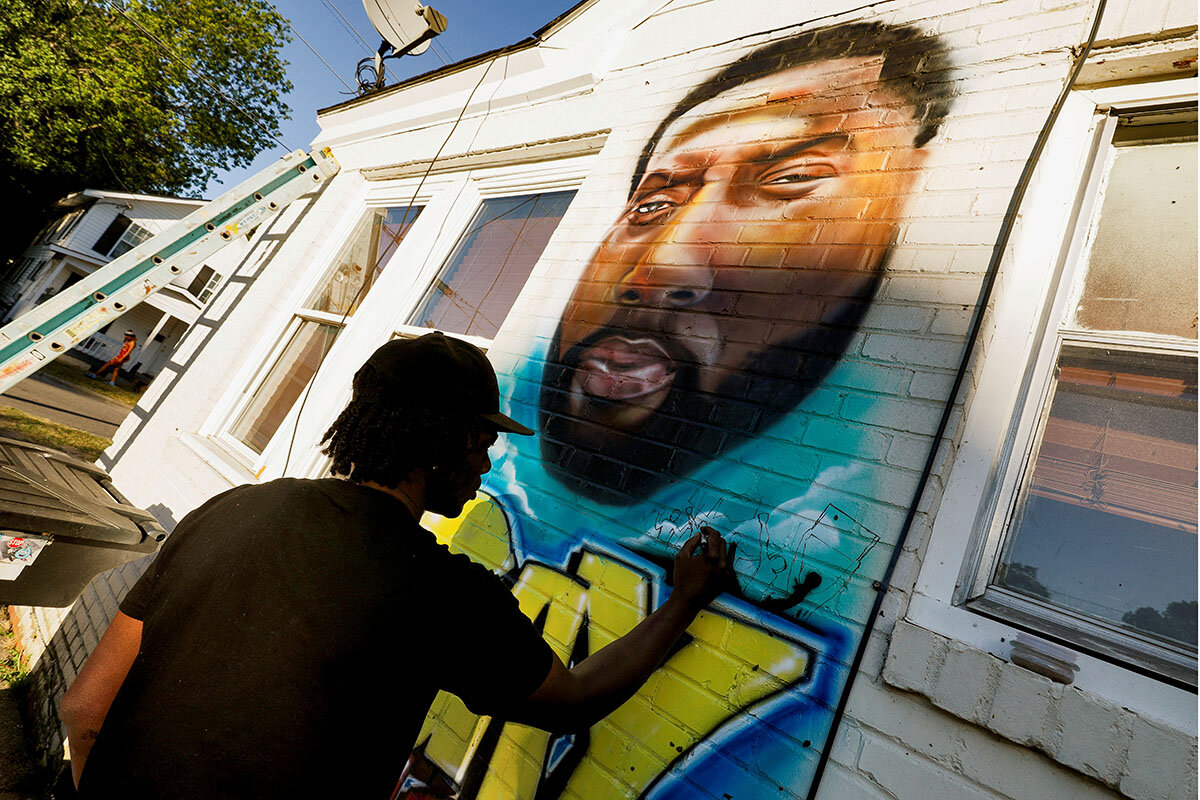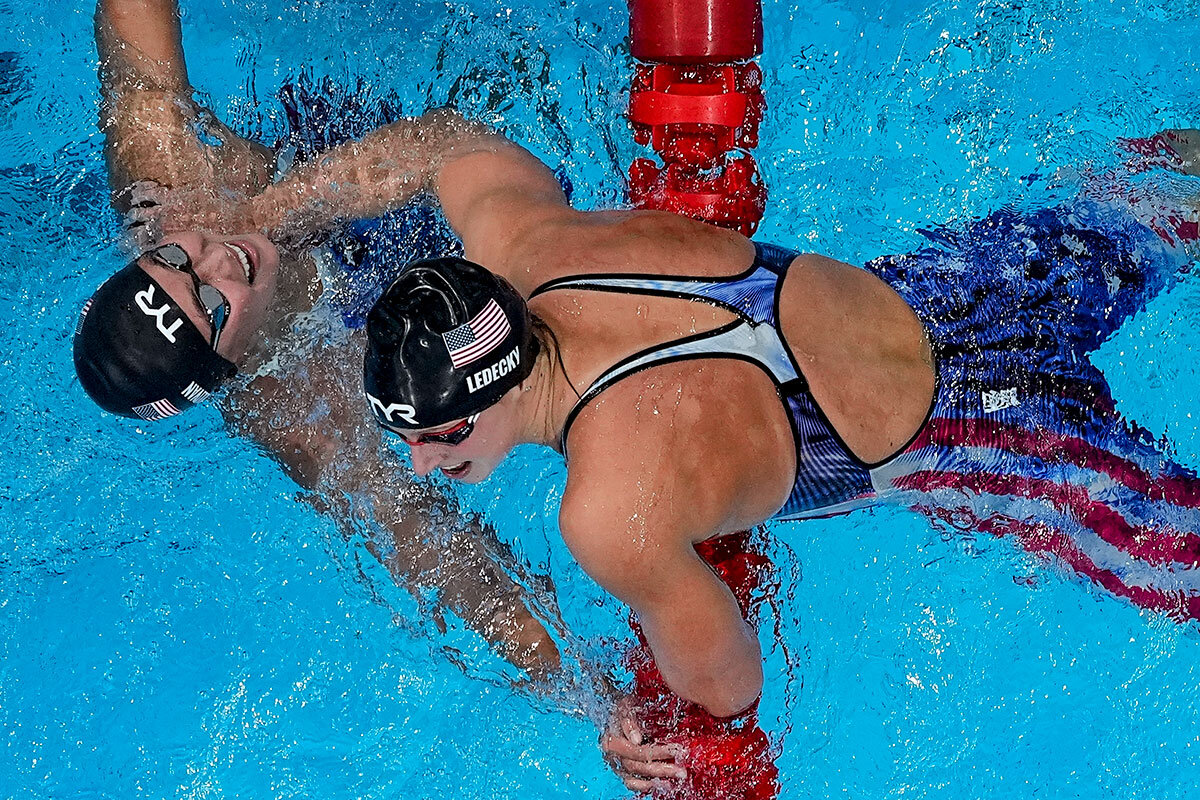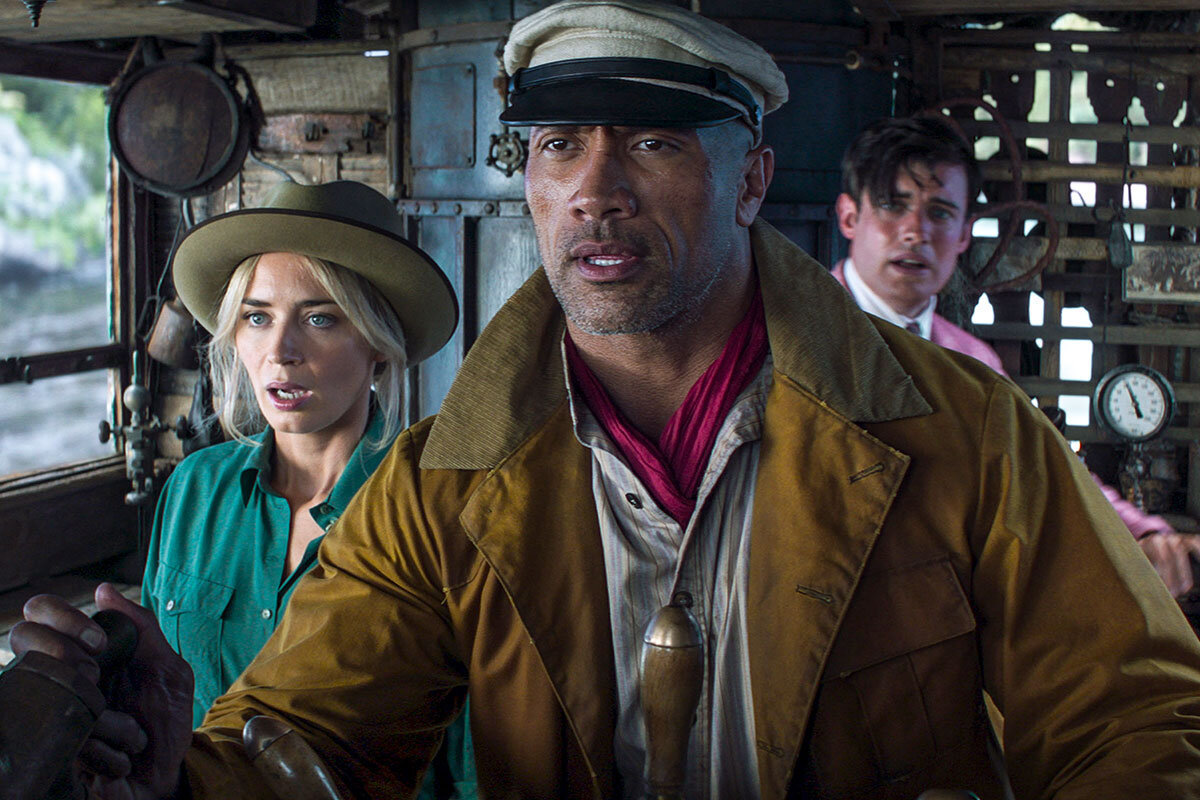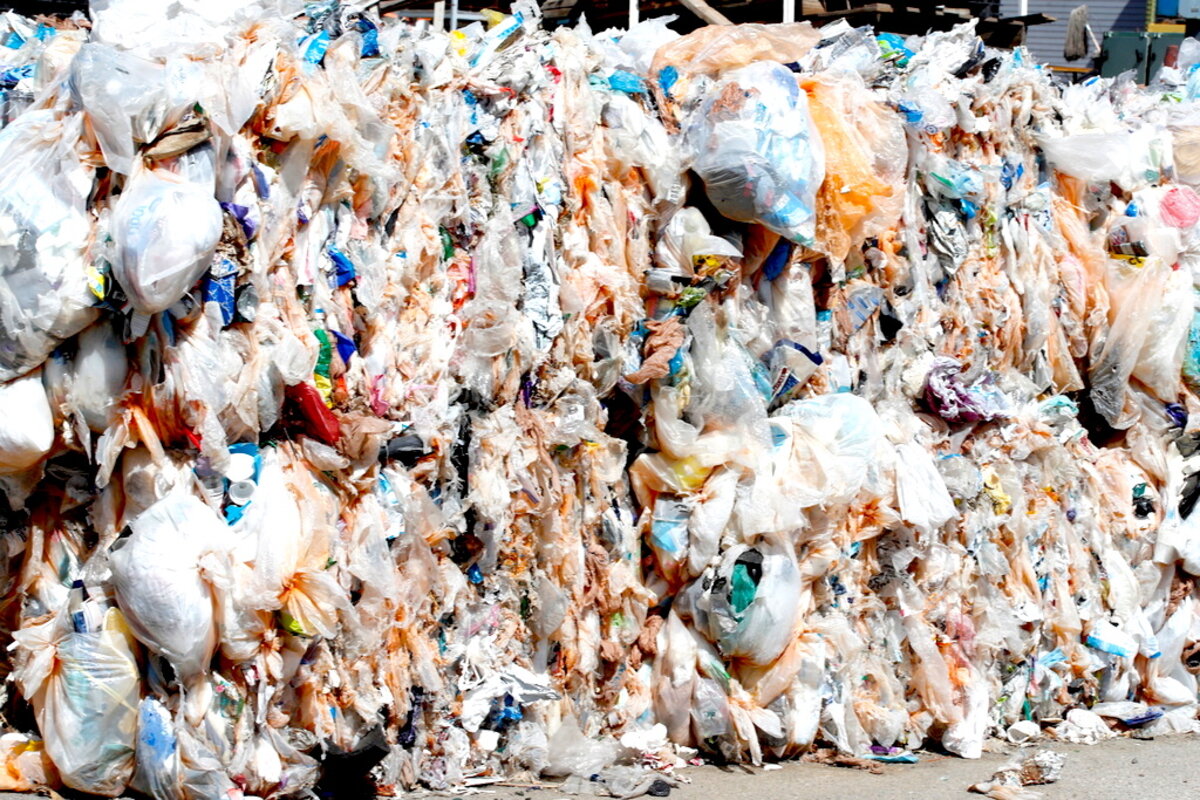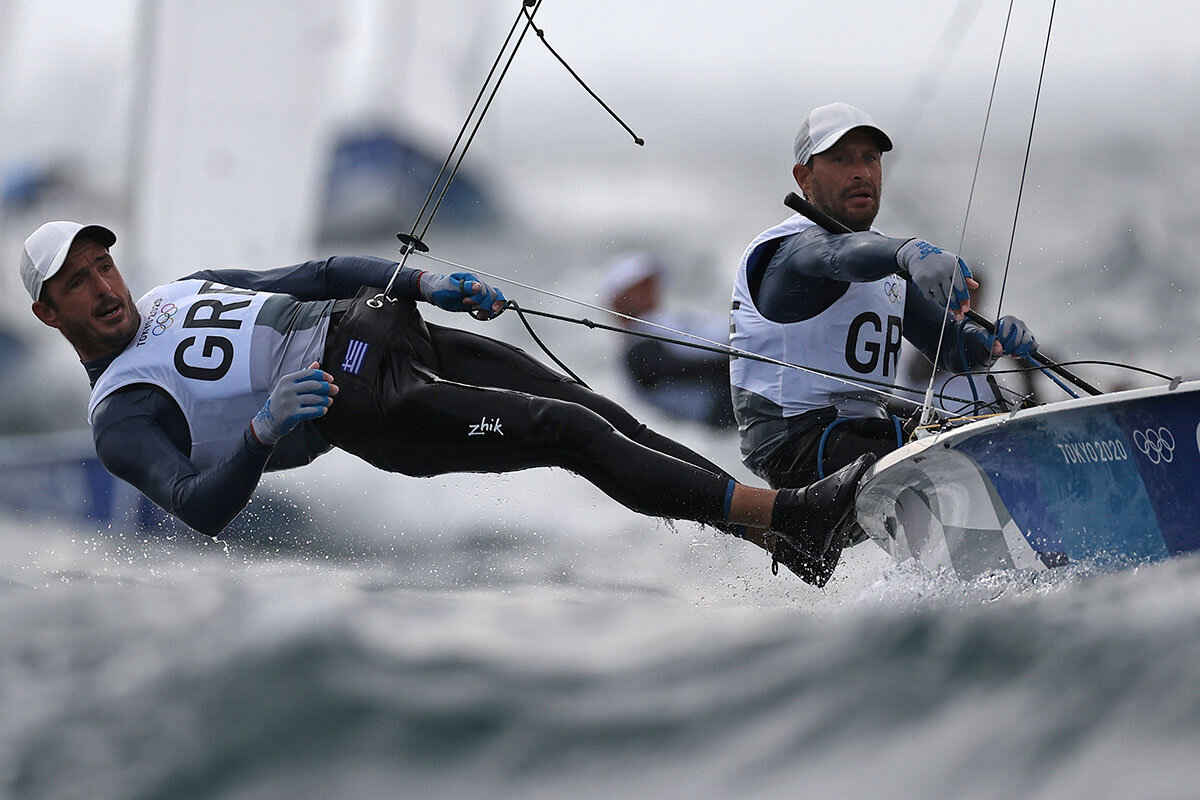The fractured relationship between police and the Black community today is significantly shaped by how the United States changed its approach to illegal drugs 50 years ago.
Monitor Daily Podcast
- Follow us:
- Apple Podcasts
- Spotify
- RSS Feed
- Download
 Mark Sappenfield
Mark Sappenfield
The Monitor’s Noah Robertson was in the stands for a moment that, just a few days ago, would have been unthinkable. This morning in Tokyo, America’s Sunisa Lee won gold in the women’s gymnastics all-around competition.
Before the Games began, this medal was already all but hung around Simone Biles’ neck. But when she withdrew from the team event and the individual all-around, there was Ms. Lee – a rock in the team competition and now, unexpectedly, in the individual spotlight.
Through these Olympics, Noah says he’s been thinking about why competition matters and whom athletes compete for. Swimmer Katie Ledecky told him she swims for those who want her to win gold – to give them hope and joy. For Ms. Lee, it is her father, who refused to let her quit when he was paralyzed in an accident. And her Hmong American community back in Minnesota – it would mean so much to them, her father told her. Noah sees this as the “strength of generosity.”
It was apparent, too, when Ms. Biles pulled out of the team event. Ms. Lee could have been resentful, or simply quiet. But she and her teammates were vocal in support of their friend – Ms. Lee’s admiration of her hero only amplified.
After her victory today, she hugged her competitors and took selfies with them. “She seemed very much at peace,” Noah says. Her golden moment, it seemed, had revealed no hidden superpower, but rather what has always been there, waiting for the world to notice.




